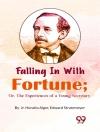In ‘Omoo: Adventures in the South Seas, ‘ Herman Melville presents a vivid account of life among the islands of the South Pacific, blending autobiographical experiences with captivating storytelling. Written in a rich, descriptive style that reflects Melville’s mastery over language, the novel captures the spirit of adventure and the allure of the exotic. As a semi-autobiographical sequel to ‘Typee, ‘ this work delves into themes of cultural clash, freedom, and the pursuit of happiness in a world often constrained by societal norms. Melville’s portrayal of the beauty and challenges of island life offers profound insights into human nature and civilization itself, set against the backdrop of the mid-19th century’s fascination with the South Seas. Herman Melville, an influential figure in American literature, drew upon his own experiences as a sailor and traveler in the Pacific Ocean, informing his narrative with authenticity and a deep sense of adventure. His encounters with diverse cultures and his critical reflections on colonialism and humanity shaped the lens through which he crafted ‘Omoo.’ This novel marks a significant evolution in Melville’s writing, showcasing his ability to engage critically with the world around him while maintaining an engaging, entertaining narrative. I highly recommend ‘Omoo’ to readers who seek not only adventure but also a thoughtful exploration of cultural dynamics in a rapidly changing world. Melville’s eloquent prose and keen observations compel readers to reflect on their own experiences and the complexities of human interactions. This novel remains a vital piece of literature for anyone interested in the richness of the South Seas and the depth of Melville’s vision.
Sobre o autor
Herman Melville (1819-1891) stands as one of the preeminent figures in American literature, renowned for his complex narrative style and profound explorations of the human psyche and existence. His experiences at sea served as an inexhaustible wellspring for his literary pursuits, most famously embodied in his magnum opus, ‘Moby-Dick; or, The Whale’ (1851). Prior to this classic, Melville honed his narrative voice with a series of sea adventure tales, with ‘Omoo: Adventures in the South Seas’ (1847) being a notable example. As a sequel to his first book, ‘Typee’ (1846), ‘Omoo’ continues the author’s semi-autobiographical account of his exotic and eventful experiences as a sailor in the South Pacific. Melville’s keen eye for detail and deep philosophical musings within the framework of adventure and travel mark ‘Omoo’ as a work that foreshadows the thematic depth and introspection of his later novels. Though his genius was largely unappreciated during his lifetime, Melville’s body of work, characterised by its symbolic complexity, narrative experimentation, and bold exploration of moral quandaries, has cemented his legacy as a monumental figure in the American literary canon. Subsequent generations have come to recognize the extraordinary depth of his work, ensuring that Melville’s contributions endure in the annals of literature.












